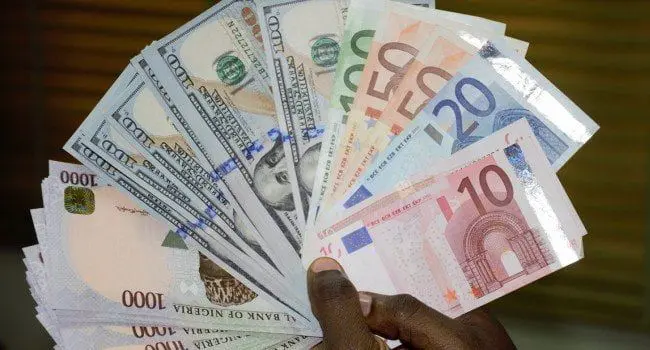
Aboki Naira to Dollar Black Market Exchange Rate Today, 15th November 2025
The Nigerian Naira maintained relative stability in the parallel market on Saturday, with Aboki traders – the informal currency dealers prevalent in Lagos, Abuja, and other major cities – quoting the US Dollar at a selling rate of ₦1,460 and a buying rate of ₦1,450 per unit.
This marks a slight softening from Friday’s rates but reflects ongoing resilience in the face of persistent economic headwinds. According to sources from Bureau De Change (BDC) operators in Lagos, the black market exchange rate showed minimal fluctuation over the weekend, with the spread between buying and selling prices narrowing to just ₦10.
Trending Now!!:
This comes after a week of modest gains for the Naira, which had hovered between ₦1,450 and ₦1,470 against the Dollar earlier in November.
The current Aboki rate underscores a cautious rebound, driven by subdued dollar demand from importers and a tentative uptick in oil remittances, though analysts warn of potential volatility if global commodity prices dip further.
For context, the official Investor & Exporter (I&E) window rate stood at approximately ₦1,450 per Dollar on Friday, highlighting the narrowing premium in the unregulated parallel segment – a gap that has fueled arbitrage for cross-border traders but also exposed vulnerabilities in Nigeria’s forex regime.
| Currency Pair | Black Market Buy Rate (₦) | Black Market Sell Rate (₦) | Change from Nov 14 |
|---|---|---|---|
| USD/NGN | 1,450 | 1,460 | Stable |
| GBP/NGN | 1,850 | 1,870 | +₦10 |
| EUR/NGN | 1,580 | 1,600 | Stable |
Market watchers attribute the Naira’s plateau to a combination of factors, including President Tinubu‘s recent approval of a 15% import duty on petrol and diesel, aimed at bolstering local refining capacity and curbing forex outflows.
“The black market’s stability offers a sliver of relief for remittances and small businesses,” said George Oshogwe Ogbolu, a forex analyst at Naija News. “However, with Europe’s economy showing only modest 0.2% growth and U.S. interest rate cuts still uncertain, we’re not out of the woods yet. The Naira could test ₦1,480 by mid-week if dollar inflows falter.”
Digital platforms like AbokiFX continue to provide real-time conversions, helping users navigate the gap between official and street rates. Local importers in the textile and tech sectors, who rely heavily on parallel market access, report hedging strategies to mitigate risks, while everyday Nigerians eye the rate warily amid rising costs for imported goods.
As Nigeria gears up for a new settlement cycle in trading firms, all eyes remain on the Central Bank of Nigeria (CBN) for potential interventions. For now, the Aboki market signals a holding pattern – a fragile equilibrium in Africa’s largest economy.


